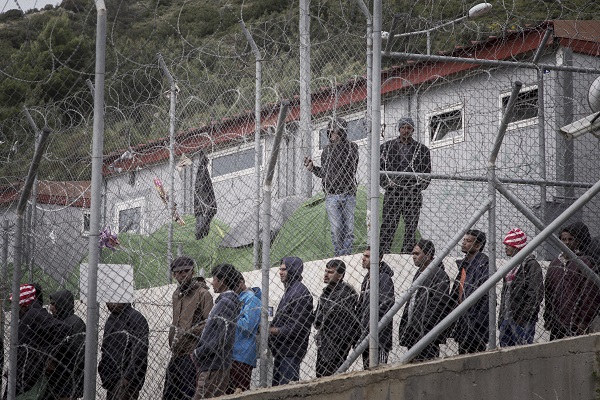
Medical humanitarian organisation Médecins sans Frontières (MSF) has taken a bold step in condemning the stance of the European Union in migration policy, announcing Friday that it will no longer be accepting funds from the EU and Member States "in opposition to their damaging deterrence policies and intensifying attempts to push people and their suffering away from European shores".
In an official statement issued on Friday, the association revealed that the decision will be immediately implemented and will apply to MSF's projects around the world.
In the statement, the organisation criticised European governments' celebration of the EU-Turkey deal, claiming by contrast that over 8,000 people have been stranded on the Greek islands as a result of the so-called successful agreement. These thousands of stranded individuals, among them hundreds of unaccompanied minors, have reportedly been left to their own devices in overcrowded camps, facing a potential forced return to Turkey and a lack of the legal aid they require to fight collective expulsion.
"For months MSF has spoken out about a shameful European response focused on deterrence rather than providing people with the assistance and protection they need," commented Jerome Oberreit, International Secretary General of Médecins Sans Frontières. "The EU-Turkey deal goes one step further and has played the very concept of "refugee" and the protection it offers in danger".
The statement further condemned a new proposal by the European Commission to replicate the same form of deal across more than 16 African and Middle Eastern countries, which would aim to encourage countries to stem migration to Europe or facilitate forcible returns by threat of trade and development aid cuts to that country. Four of the top ten refugee-generating countries according to the UNHCR Mid-Year Trends Report 2015 - Somalia, Eritrea, Sudan and Afghanistan - are among these potential countries.
"Is Europe's only offer to refugees that they stay in countries they are desperate to flee?" continued Oberreit. "Once again, Europe's main focus is not on how well people will be protected, but on how efficiently they are kept away."
MSF warned that the EU-Turkey deal promulgates the message around the world that providing asylum to refugees is an option, rather than a humanitarian necessity. It pointed to the Kenyan Government's decision last month to close the world's largest refugee camp, Dadaab, and send its residents back to Somalia, based on European migration policy.
"Europe's attempt to outsource migration control is having a domino effect, with closed borders stretching all the way back to Syria," Oberreit admonished. "People increasingly have nowhere to turn. Will the situation in Azaz where 100,000 people are blocked between closed borders and front lines become the rule, rather than the deadly exception?"
MSF granted that needs are great in Turkey, considering the nearly three million Syrian refugees it is currently hosting, but claimed that the €1 billion in humanitarian aid comprised in the EU-Turkey financial package has been negotiated as a reward for border control promises, rather than being determined according to needs only. It deemed this instrumentalisation of humanitarian aid as "unacceptable".
“Deterrence policies sold to the public as humanitarian solutions have only exacerbated the suffering of people in need. There is nothing remotely humanitarian about these policies. It cannot become the norm and must be challenged,” concluded Oberreit. "MSF will not receive funding from institutions and governments whose policies do so much harm. We are calling on European governments to shift priorities - rather than maximising the number of people they can push back, they must maximise the number they welcome and protect."








